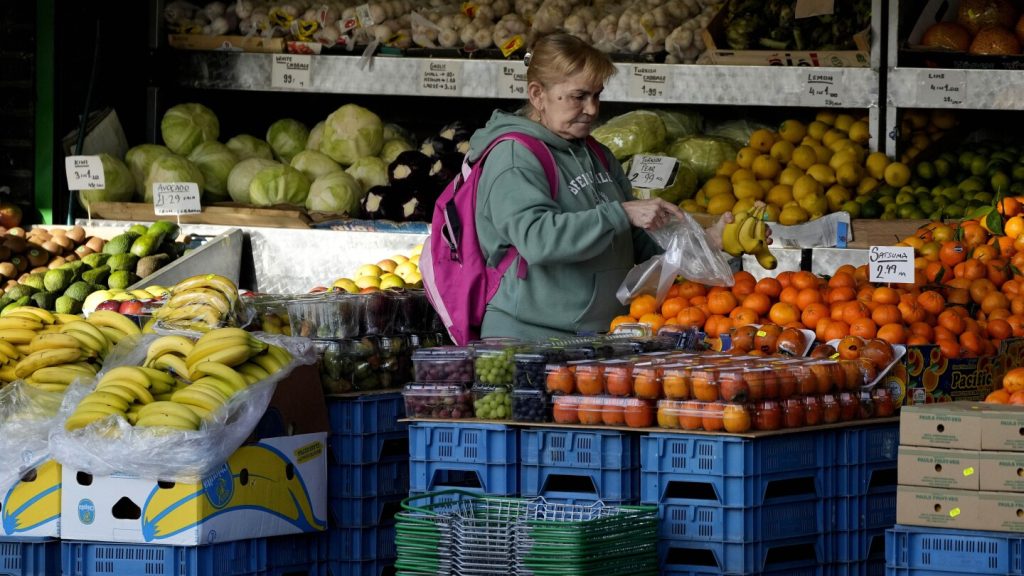Inflation in the U.K. has fallen to its lowest level in two and a half years, dropping to 3.2% in the year to March, according to official figures. This decrease was driven by lower food prices and marks the lowest level since September 2021. While the rate of inflation is still above the Bank of England’s 2% target, the trend indicates a potential cut in interest rates in the near future. Economists had predicted a lower reading of 3.1% for the month, highlighting the unexpected nature of the decrease.
The U.K.’s inflation rate is now lower than that of the U.S., a significant shift for the first time in two years. In contrast, March saw inflation in the U.S. rise to 3.5%. With inflation expected to fall further in April, potentially dropping below 2%, due to decreased domestic energy bills, the Bank of England may consider reducing interest rates from the current 16-year high of 5.25%. However, some policymakers caution that the fight against inflation is not over, as they anticipate prices to rise again in the second half of the year.
Economists believe that inflation in the U.K. could soon return to the target of 2%, which may increase pressure for a cut in interest rates. The Bank of England, along with other central banks globally, raised interest rates aggressively in late 2021 to counter price rises driven by supply chain issues during the pandemic and Russia’s invasion of Ukraine. The impact of higher interest rates, which make borrowing more expensive and reduce spending, has contributed to lowering inflation worldwide.
The governing Conservative Party in Britain is hopeful that the lower inflation and potential decrease in interest rates will create a positive economic outlook ahead of a general election scheduled by January 2025. However, opinion polls currently show the main opposition Labour Party leading by a significant margin, indicating a potential change in government after the Conservatives have held power since 2010. The economic landscape, including inflation and interest rates, is likely to play a crucial role in shaping the narrative leading up to the election.
Overall, the decline in inflation in the U.K. reflects a broader trend of easing price pressures following the spike caused by the pandemic and geopolitical events. While the prospect of lower interest rates may provide some relief for consumers and businesses, policymakers remain vigilant about the potential for prices to rise again in the future. The evolving economic situation, both domestically and globally, will continue to influence decisions on monetary policy and shape the trajectory of inflation in the coming months.


